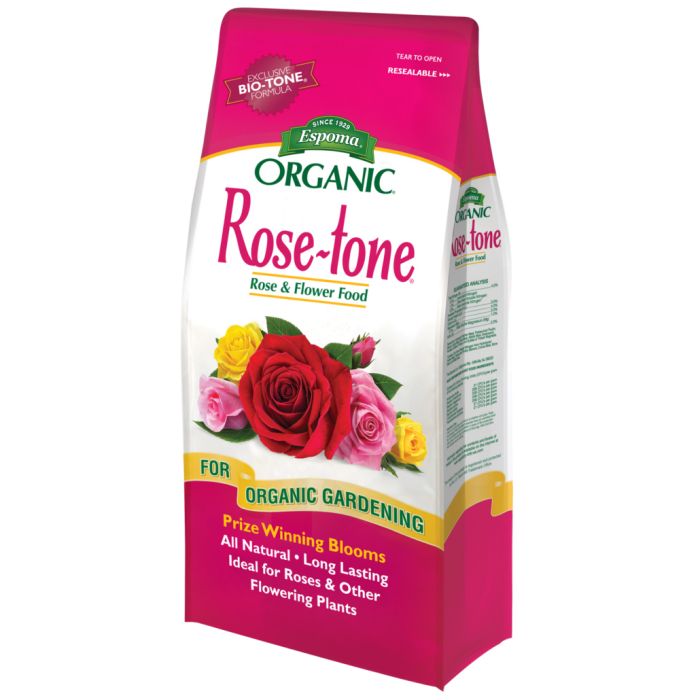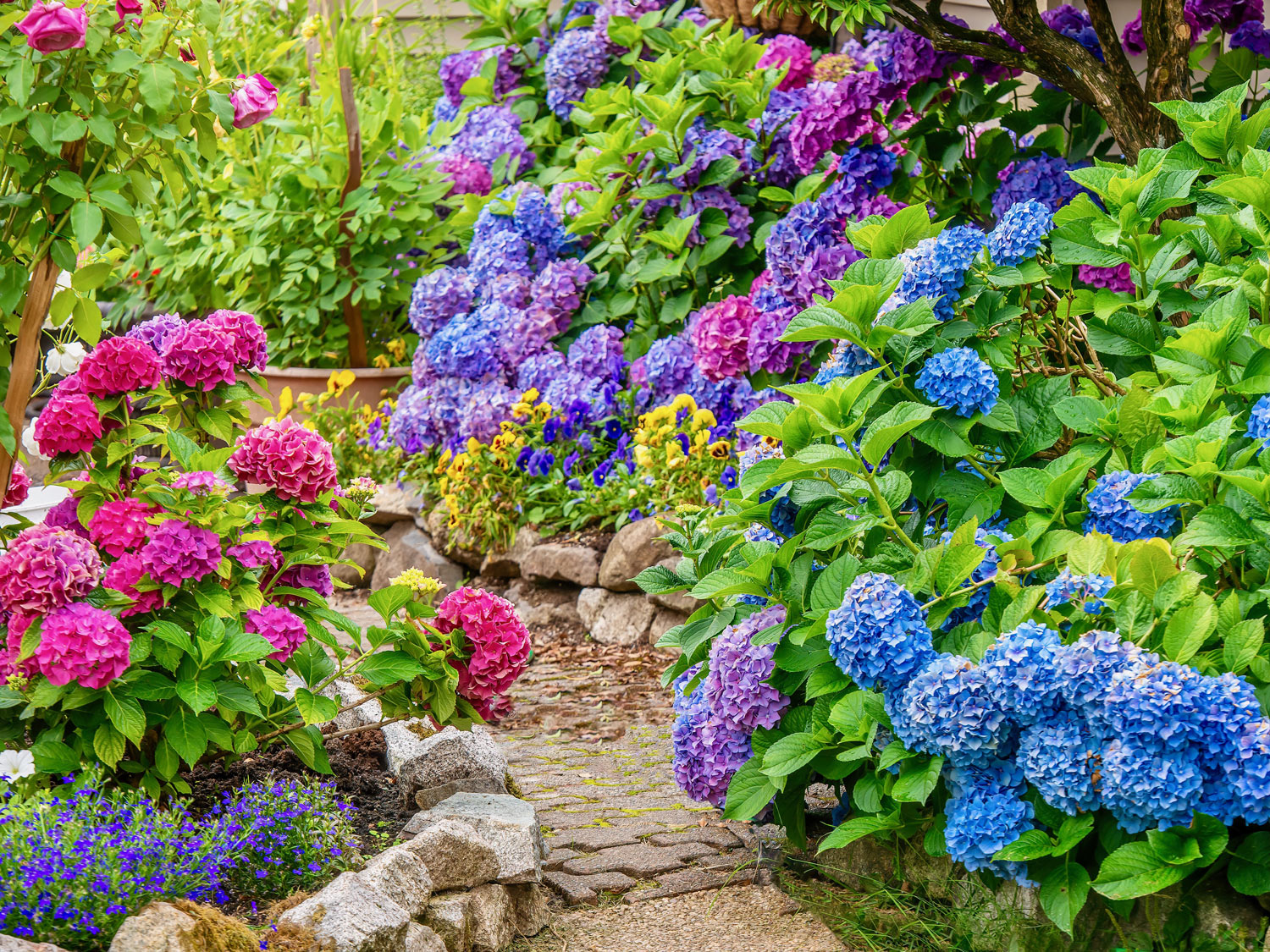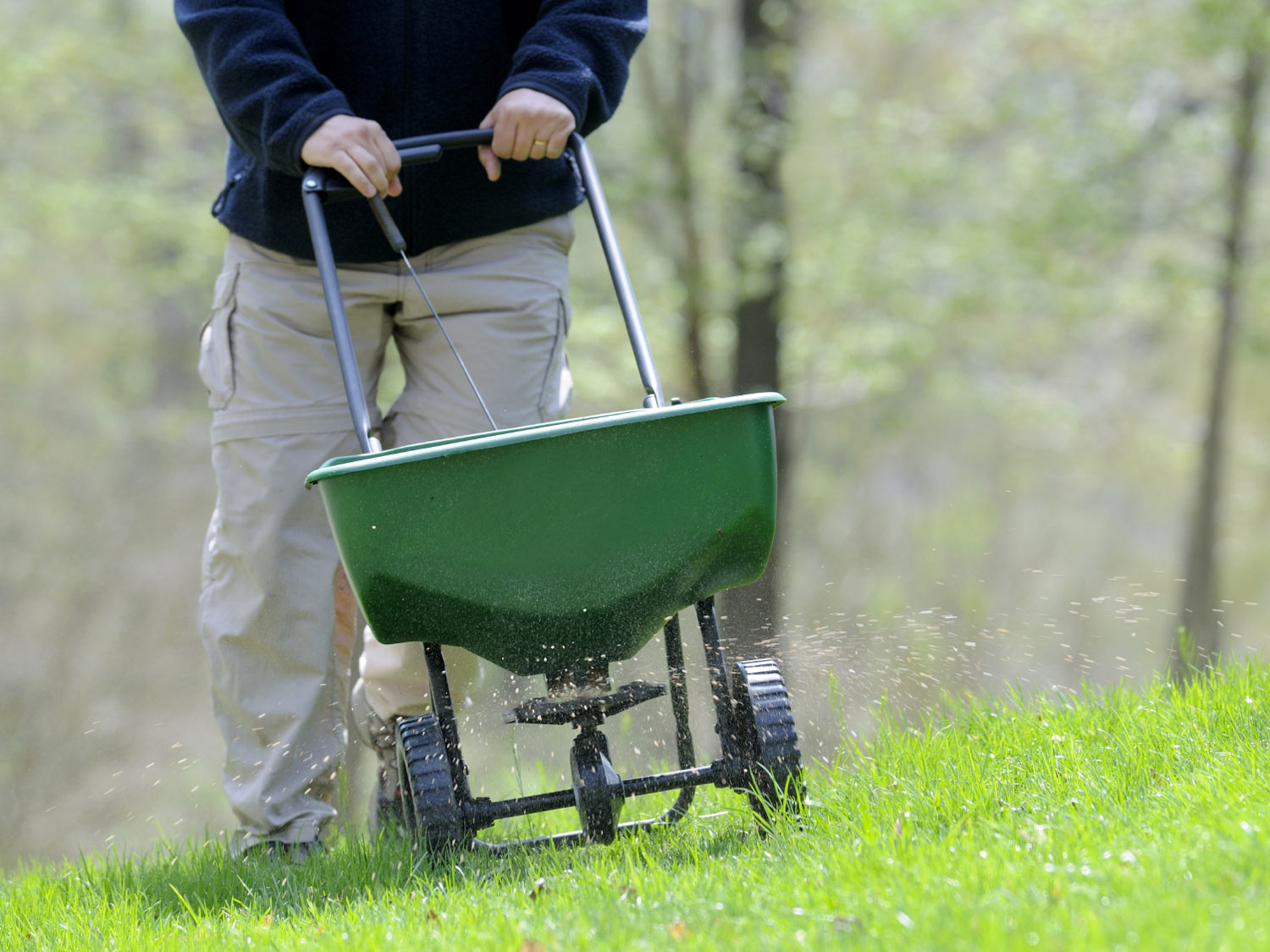Espoma Organic Rose-Tone

Description
Natural & Organic Fertilizer for all roses Used & recommendedby professional rosarians. Grow big beautiful plants with prize winning blooms. 100% natural & organic ingredients with no fillers or sludges. Long lasting, slow-release feeding with our exclusive Bio-tone® Microbes
Feed your plants the best!
Achieve a lush, vibrant garden with the help of Gertens wide selection of fertilizers! Whether you're tending to your lawn, plants, flowers, or vegetables, proper fertilization is key to promoting healthy growth and abundant blooms. Trust Gertens to provide the nutrients your garden craves, ensuring your outdoor oasis thrives throughout the season.
Details
Natural & Organic Fertilizer for all roses Used & recommended by professional rosarians. Grow big beautiful plants with prize winning blooms. 100% natural & organic ingredients with no fillers or sludges. Long lasting, slow-release feeding with our exclusive Bio-tone® Microbes
FOR USE ON: Use with all varieties of roses in the landscape or in containers. Can also be used on flowering plants like Viburnum, Bougainvilleas & Clematis.
WHEN TO USE: For best flower production feed monthly through the growing season – often May through September.
HOW MUCH TO USE: Established Plants:
- Individual Plants: Apply 1-1/4 cup around each plant and scratch into the top inch of soil.
- Rose Beds: Spread 6 lbs. per 100 square feet of bed area and scratch into the top inch of soil.
- Potted Plants: For soil preparation before planting mix 2 cups of Rose-tone into each cubic foot of potting mix. Feed established plants 1 teaspoon for each 3 inches of pot diameter. Repeat monthly.
- Tip: Keep plants mulched and watered. Always water the soil and not over the foliage of roses.
HOW TO APPLY: New Planting:
- Bare Root Plants: Dig a hole about 12” across and 18” deep. Add peat moss and 3 cups of Rose-tone to the soil removed and mix thoroughly. Use this mixture to partially refill hole. Make a cone of soil to place plant on. Spread roots evenly. Planting depth should be such that the graft knuckle is just below ground level. Add 4 – 5 inches of soil and firm around roots. Fill hole to within 2 to 3 inches of top, fill with water and let it soak in. Finish filling hole.
- Container Plants: Some pre-packaged roses should be planted in their original container. Follow instructions on container to determine if the plant should be removed or planted with the container. Follow directions for “Bare Root Plants” for general planting procedures and hole size. Instead of making a cone to place the roots on, fill the hole with enough soil so that when the container is placed in it its soil level is the same as the surrounding area. Place plant in hole and refill as outlined above.
More Information
| Safe to Use On | Flowers, Roses, Shrubs, Trees, Vegetables |
|---|---|
| Fertilizer Composition | Granular |
| Brand | Espoma |


